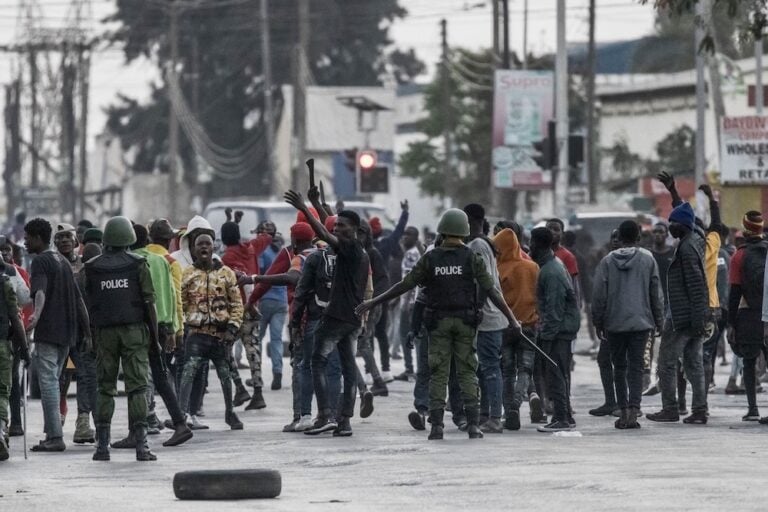On 19 January 2000, Brighton Phiri, a reporter working for the “Post” newspaper, was asked to leave a press briefing addressed by the director of civil aviation, Eustus Mambwe, because he was from that newspaper. Phiri told the Zambia Independent Media Association (ZIMA/MISA-Zambia) that the assignment to Mambwe’s offices began like any other, where journalists […]
On 19 January 2000, Brighton Phiri, a reporter working for the “Post” newspaper, was asked to leave a press briefing addressed by the director of civil aviation, Eustus Mambwe, because he was from that newspaper.
Phiri told the Zambia Independent Media Association (ZIMA/MISA-Zambia) that the assignment to Mambwe’s offices began like any other, where journalists from both sections of the media, private and state-owned, were notified of a press briefing by the Zambia Information Services (ZIS).
Prior to the start of the press conference, each journalist was asked to introduce him or herself. When his turn came, Phiri identified himself as working for the “Post”. It was at that point that Mambwe allegedly asked him to leave.
“Mambwe said he was sorry he could not allow me to sit in the press conference because he was instructed not to talk to reporters from the Post. When I asked who gave the order he only said it came from higher authorities,” Phiri told ZIMA.
Leversadge Mulinda, a reporter working for the state-owned “Zambia Daily Mail”, who witnessed the incident, confirmed to ZIMA that Phiri was asked to go. “The director of civil aviation told him (Phiri) that at his level he was not allowed to talk to Post reporters, but maybe the permanent secretary could. He then asked him to excuse us,” Mulinda said.
However, when contacted for a comment, Mambwe denied asking the reporter to leave. He instead blamed his junior officials. “My officers may have refused him permission to attend the press briefing but not me. It is a lie,” he said. Responding to this denial, Phiri said Mambwe was simply embarrassed because he did not expect him to write a story about being barred from the briefing.
In an editorial entitled “Unending hostilities” published in the 20 January edition of the “Post”, the newspaper said it was undaunted by moves by the government to deny it access to information. “These bans will not stop us from striving for excellence in all that we do. We, however, know that it is very difficult to have well balanced stories when government officials have been banned from talking to our journalists”.
Reacting to the incident, ZIMA chairman David Simpson said in a press statement that he was “deeply disturbed by this crude display of hatred and censorship of the Post by Dr. Mambwe. It shows his contempt of the public’s right to information, through newspapers and other media of their choice, including the Post. Whoever gave the directive that civil servants of (Mambwe’s) rank should not talk to the Post, even at press briefings where all other information media in the country are invited is guilty of the same charge, gross censorship”.
Simpson called for an explicit guarantee of freedom of the press in the Zambian Constitution as well as a Freedom of Information Act, arguing that such provisions “would go a long way towards
facilitating the work of journalists from all sections of the media, thereby enhancing the democratic process in the country”.
On 1 January, Kelvin Shimo, who also works for the “Post”, was barred by one of President Chiluba’s aides, Bob Samakayi from boarding an aircraft ferrying other journalists to a ruling MMD party function officiated by President Chiluba at Itezhi-tezhi in Southern Zambia (see IFEX alert of 17 January 2000).
ZIMA reports that Zambia does not have a Freedom of Information Act. As a result, journalists, especially from private newspapers like the “Post” frequently encounter bureaucratic hurdles as they try to do their work. Journalists from the state-owned media, which are almost always supportive of the government, almost never face such difficulties.


